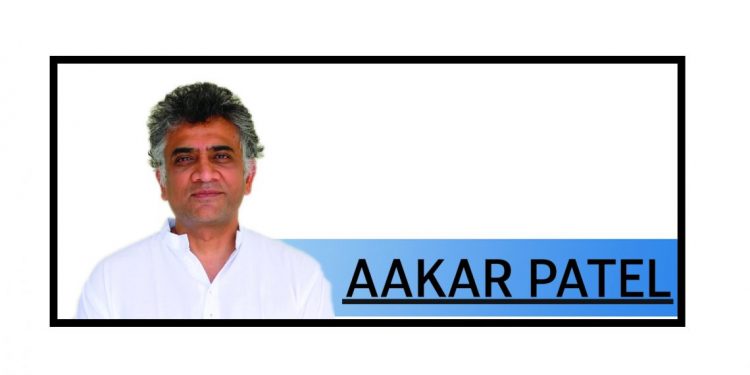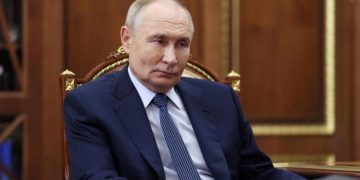Through the 1990s and up until fairly recently, India insisted on something called de-hyphenation. The hyphen referred to was the one in the term ‘Indo-Pak’, which is how the world saw South Asia. Neither country was seen from the outside without the shadow of the other.
American diplomats visiting India, like Robin Raphel, an official in the Clinton administration, would make it a point to visit Pakistan when visiting India to ‘balance’ the relationship. President Clinton himself when he visited India in March 2000 also stopped over in Pakistan for a few hours on his way back to assure Islamabad that it was not forgotten.
India chafed at hyphenation because it saw itself, legitimately, as the bigger power, the world’s largest democracy and in many ways similar to the West, as opposed to our terror-exporting, failed-state neighbour. Others did not always see it quite that way. The world was fixated on the hyphenation of Indo-Pak, especially in 1998 when India under Atal Behari Vajpayee detonated nuclear devices in mid-May and then Pakistan under Nawaz Sharif also did the same on 28 May. The world was concerned about instability and recklessness and this was heightened with the Kargil War of 1999, which was not officially war — because war had not been declared by either nation — though over 1,000 soldiers were killed.
Pakistan and India fought in conventional fashion with artillery and air force on the unsaid assumption that escalation to nuclear exchange would not materialise, the first time that such a conflict between nuclear states had been witnessed in the world. The media and the public on both sides were mobilised with the sort of frenzy that we are familiar with. The world was alarmed and Clinton stepped in and forced Pakistan to pull back its forces from Kargil. Two things came after this which removed the hyphen. The first was the attack of 11 September 2001 which took down the World Trade Center towers, leading America to declare a war on terrorism. Karachi was required for the US invasion of Taliban-controlled Afghanistan and almost all of the fuel, ammunition and spares the US/NATO military needed were shipped through Pakistan, for a fee. Like Gen Zia-ul-Haq in 1979 after the Soviet invasion of Afghanistan, Gen Pervez Musharraf suddenly found himself acceptable and his coup against Nawaz Sharif was overlooked.
India’s government was initially anxious, irritated and perhaps even jealous of all the attention Musharraf got on the global stage, but Vajpayee wisely stayed away from the adventure. The Americans coined the term ‘Af-Pak’. The Indo-Pak hyphen became blurred.
The second reason is best exemplified by the term ‘India Shining’, the advertising campaign launched on the assumption that India was the next China in terms of economic growth. In 2004, UPA minister Jairam Ramesh came up with the term ‘Chindia’ in the hope that “India and China could cooperate and work together to face challenges ahead.”
India wanted to be seen relative to its larger neighbour on the northeast and to de-hyphenate itself from the one on the northwest. The term Chindia did not stick, unfortunately. China’s spectacular rise meant that economically there was no contest. India showed some promise, but offered mostly bluster instead of performance.
Truth be told this flopping of Chindia was not necessarily all bad. You see, India’s annoyance at being clubbed with Pakistan was purely out of resentment. We wanted to be seen as being superior and not associated with the poor cousins. However, the reality was and is that India is most comfortable when in a match-up with Pakistan because that comes naturally to us, unlike dealing with China or even with Bangladesh.
The passion India shows in forums like the United Nations when our diplomats speak on Pakistan, we do not display for other nations. The speeches we have presented, such as those by the late foreign minister Sushma Swaraj, ostensibly for the benefit of the General Assembly but actually aimed at a particular nation are a good example of this.
Taking on Pakistan is the position that is most satisfying and where the Indian establishment finds itself most comfortable. This is particularly true of India under the BJP, for whom Pakistan is the external manifestation of its primary enemy. Our ‘strategic affairs community’, including retired military officers, is instinctively enthusiastic about prosecuting war against Pakistan as we can observe. Their unfiltered views on social media and TV debates are revealing.
Even the Indian public’s participation is at its peak when it is mobilised against Pakistan. The scenes of Indians abroad screaming abuse and making gestures outside embassies might appear off-putting to some but are pleasing to the many.
We may not want the world to focus on Indo-Pak, but we certainly want to wallow in it. This is the paradox of Indo-Pak de-hyphenation. We are too important to want to be paired with Pakistan but too intensely connected to it to successfully detach ourselves.
The late scholar Stephen Cohen offered insight into this: “Structurally, the India-Pakistan relationship is toxic. It is a classic case of what I call a Paired Minority Conflict. In these situations both sides see themselves as vulnerable, threatened, encircled, and at risk. They have a minority or small-power complex, which also means that conventional morality does not apply to them” and that “Pakistan remains deeply embedded in Indian thinking.”
Cohen thought Sri Lanka (Sinhala v Tamil) and the Middle East contained similar relationships.
Cohen died in 2019 and the world for many years has not used the hyphen. But every so often events give us the opportunity to attach it ourselves.
By Aakar Patel






































